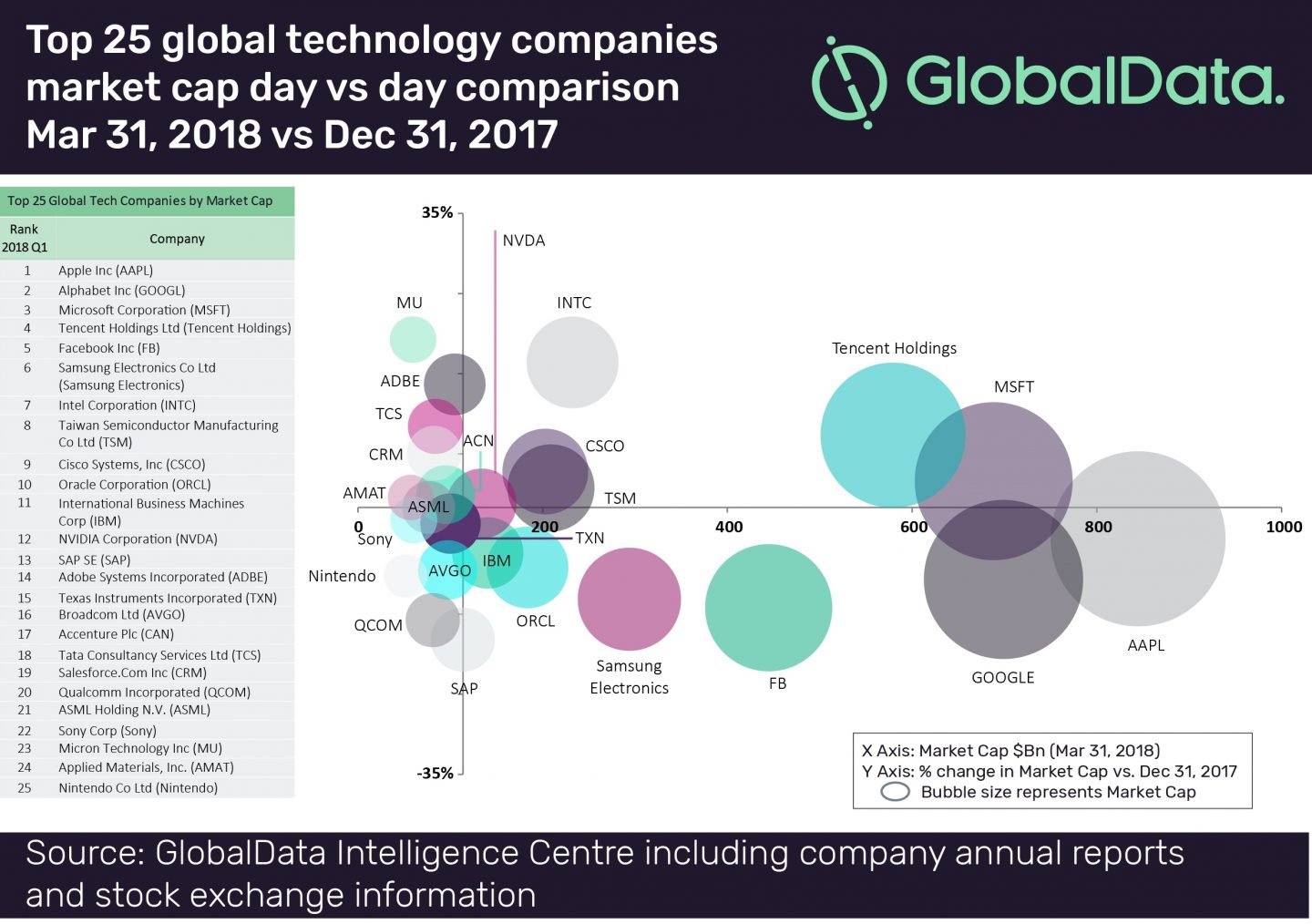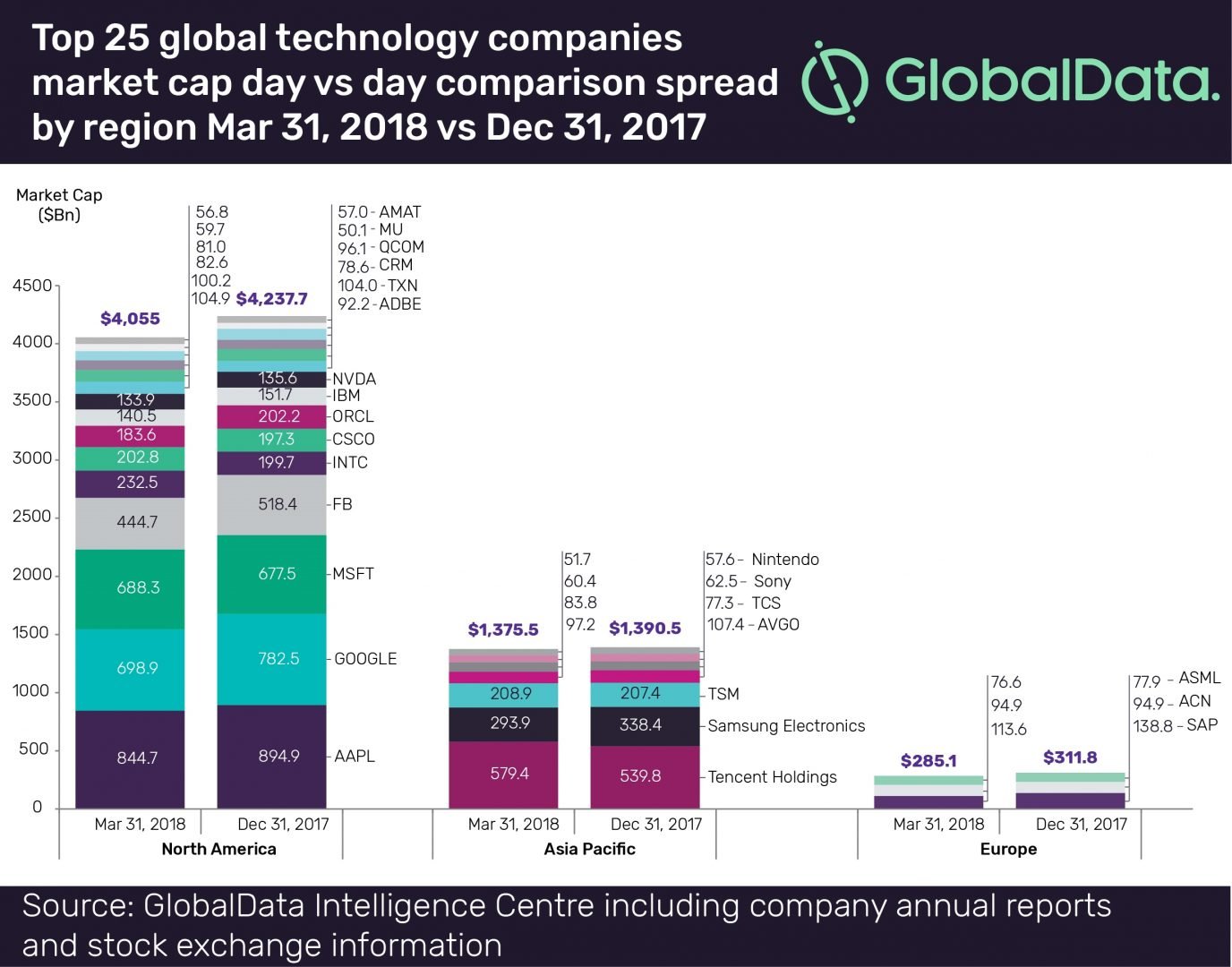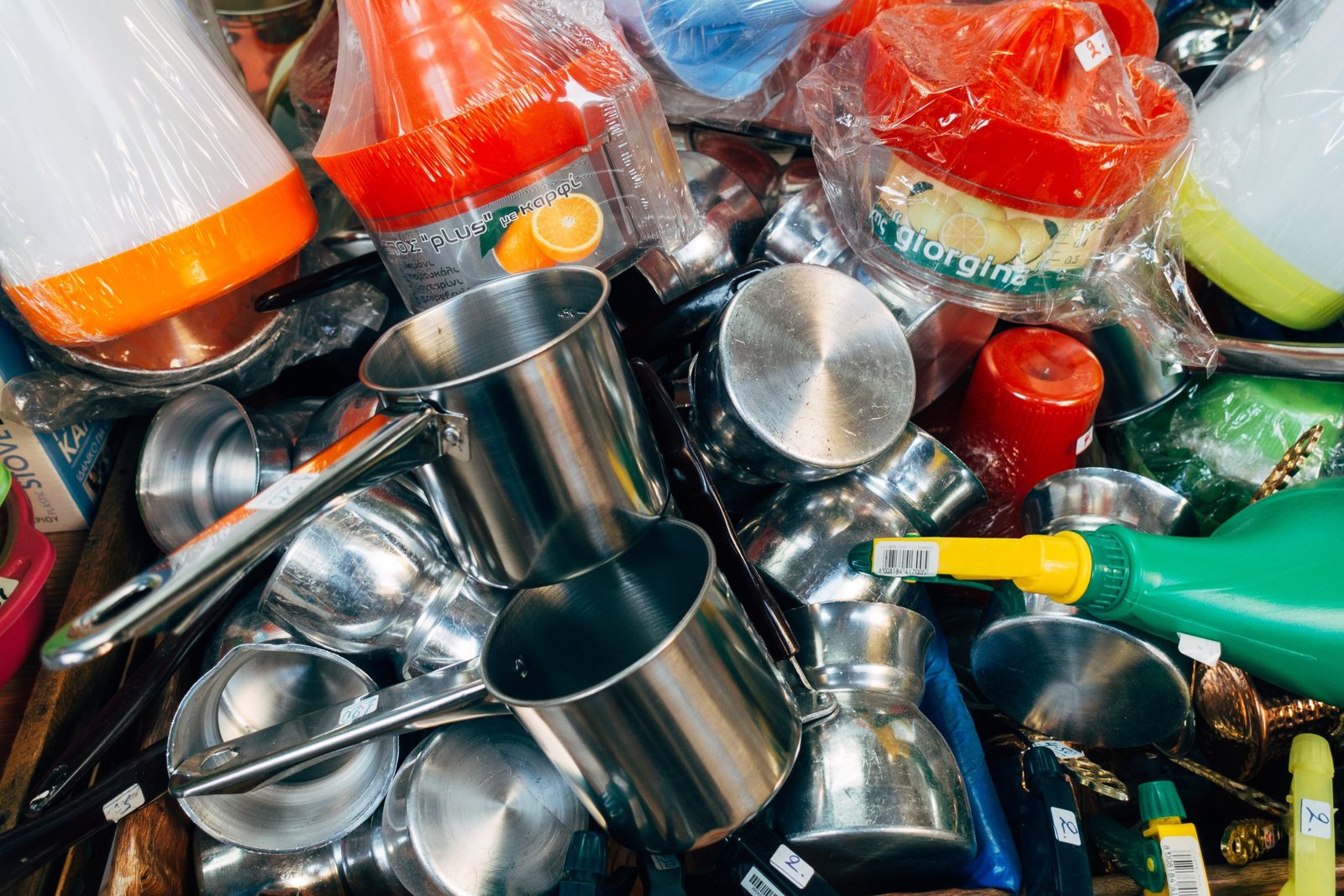The performance highlights of the Top 25 publicly traded global technology companies by Market Cap (Mcap) between the last day of Q1 2018 and the last day of Q4 2017 have been analyzed in the latest research from GlobalData, a leading data and analytics company.
The completed day vs day (31 Mar 2018 vs 31 Dec 2017) analysis reveals a number of interesting insights.
here was no new entrant in the top 10 technology companies list based on Mcap. The top 6 companies retained their positions in Q1 2018. Apple remained top with Intel and Cisco Systems moving up to 7th and 9th positions, whereas Taiwan Semiconductor and Oracle went down to 8th and 10th positions.
The overall list witnessed a 4% decline with an aggregate Mcap of $5.7tn. A decline in Mcap was reported by approx 56% of the Top 25 players, with major losers being Qualcomm, SAP, and Facebook; recording a quarterly decline of 9%. Companies such as Apple, Taiwan Semiconductor, and Broadcom have witnessed lower demand for smartphones, thereby resulting in their share price to decline.
Of the nine companies that witnessed growth in Mcap, only three including Micron Technology, Intel, and Adobe Systems have recorded a 10% growth and moved up in the list in Q1 2018. Stocks in Adobe Systems and Microsoft increased at the end of March 2018 due to an extension of their partnership in China. Although the Mcap for Applied Materials remained unchanged, it nevertheless slipped two positions to 24th in the ranking. Accenture, Tata Consultancy Services, and Micron Technology are the three new entrants in the top 25 list, ousting Hon Hai, VMware, and Canon.
The geographic concentration of the Top 25 remained unchanged from the previous year, with North America leading the pack, followed by Asia Pacific and Europe. Stocks in US companies received a major hit, mainly influenced by concerns about trade friction with China and the anticipation of strict government regulation. However, stocks of Asian and European companies have been largely unaffected.








